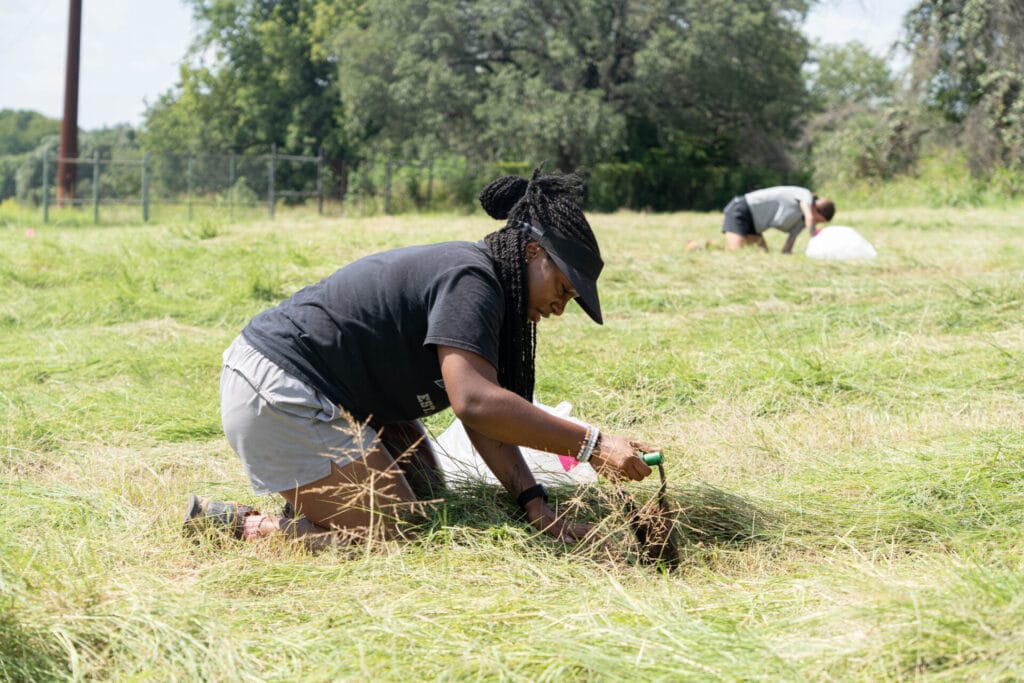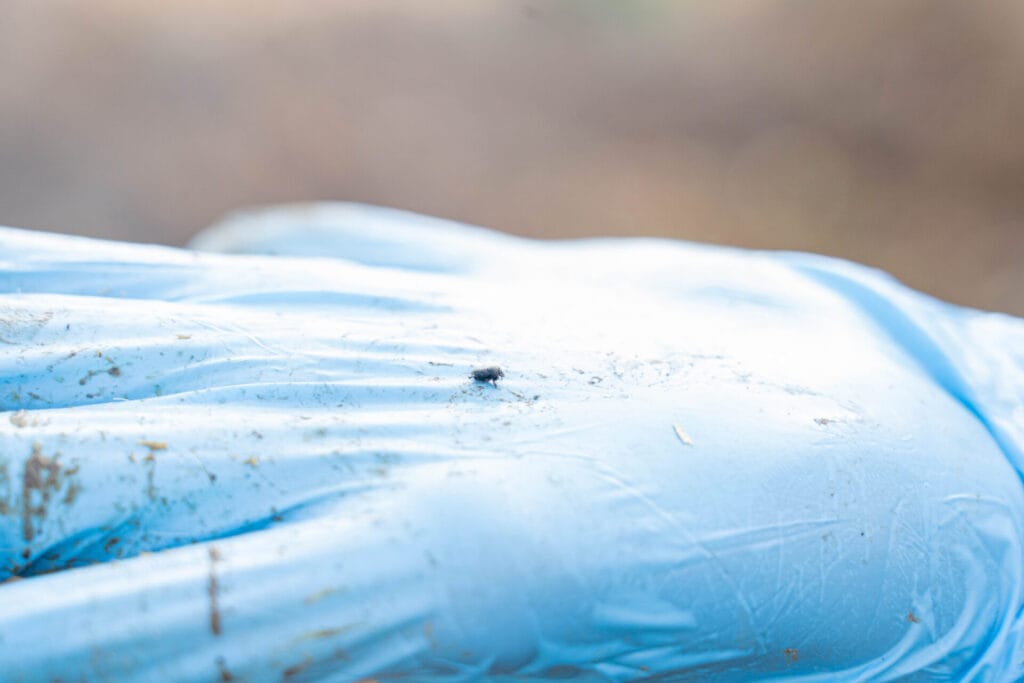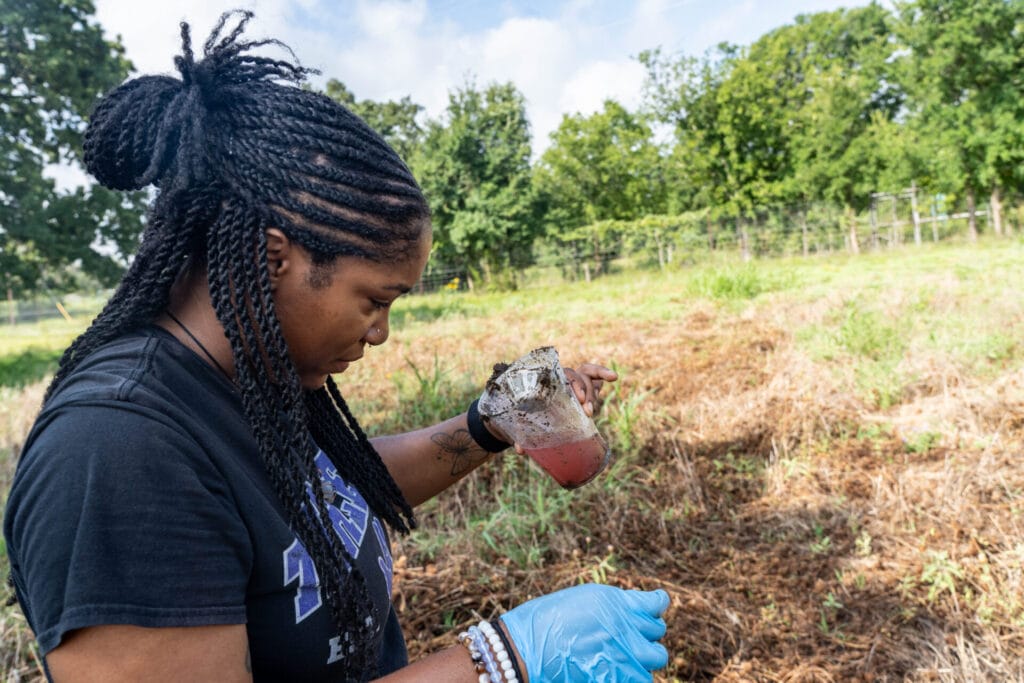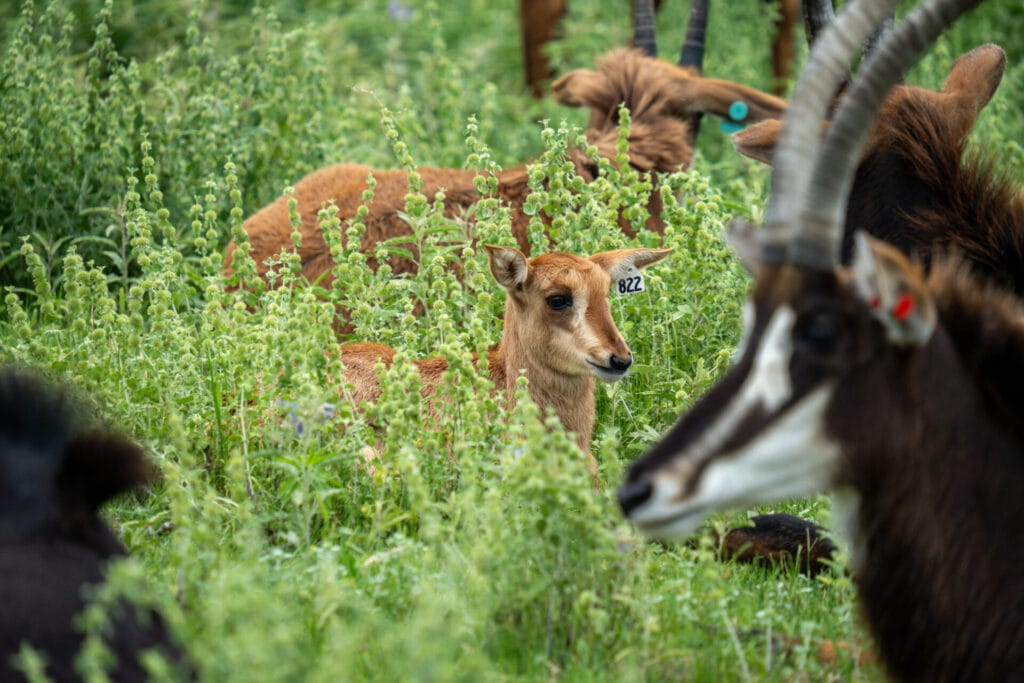One tenet of Fossil Rim’s mission is to act as a classroom and lab for students and staff members looking not only to grow their experience, but also to move the field of science forward. Our partnership with Tarleton State University does just this, welcoming students to both work and study on property. Lavender Blackston, a graduate assistant in the Department of Wildlife and Natural Resources, joined us this year to conduct her graduate research project, focusing on how livestock medication impacts local ecosystems. The star of this study is a frequently overlooked native resident, the dung beetle, who she believes has the ability to give us insight into caring for the land we live and work on.

Lavender began her time at Tarleton in 2020 as an undergraduate student. After earning a bachelor’s degree in Wildlife, Sustainability, and Ecosystem Sciences, she continued on into her graduate program, which she hopes to complete in 2026 before pursuing a PhD. In the meantime, she is the president of the brand-new Tarleton Entomological Society, which she says promotes education about, and community engagement surrounding, insects both on campus and in the surrounding communities.
When it came time to find a topic for her graduate research project, Lavender looked to combine her myriad of interests – insects, conservation, and the study of humanity’s effects on the planet. One of the major ways that humans in Texas affect the environment is through ranching, and especially through various medications used to treat livestock. Following a study abroad trip to Africa, she realized that dung beetles, who she had developed an affinity for, might be the perfect subjects to test how these medications are affecting pastures. Texas is home to over 50 species of native dung beetles, as well as to hundreds of thousands of ranches full of livestock. Lavender decided to focus on veterinary anthelmintics, or antiparasitic drugs, and their effect on dung beetles, and looked to Fossil Rim as a possible testing ground after a recommendation from an advisor.
“I was already familiar with Fossil Rim and the incredible people and work being done there,” says Lavender. “So when the opportunity came up to collaborate, I jumped on it immediately!”

Lavender breaks down her project like this: decomposer insects like dung beetles play a crucial role in recycling animal waste, which supports their ecosystems. Some of these ecosystems have now become home to livestock, and concerns have been raised about the widespread use of antiparasitic medications, which could have unintended consequences for other insects, particularly decomposers. By studying dung beetles, who are some of the first to interact with animal waste that contains these medications, we can better understand their effects and create new solutions to maintain pasture ecosystems and inform sustainable livestock management practices.
How do you go about studying a population of insects the size of a guitar pick? In this case, Lavender creates small pitfall traps using two types of cups- one large one to catch the bug, and one small one containing animal feces to lure them over. Three types of waste are on the menu, a sample with high traces of anthelmintics, a sample with low traces, and a baseline with none. The traps can help determine if the beetles have any dietary preferences, and once caught, they can be analyzed to see how much medication has been transferred to them during the rolling process.

Lavender says her research has already shown that dung beetles have a preference for waste with lower to no anthelmintic residues. This could mean that in places where all waste contains medication, dung beetles may not be able to do their job as decomposers properly. The analysis isn’t complete, but Lavender is confident that her study will yield results that could be utilized by ranchers throughout the United States.
“My goal is to highlight existing practices and offer a path forward that reinforces, not replaces, natural processes already at work in pastures,” she says. “Ultimately, I hope this research helps promote the long-term sustainability of pasture-based agriculture in the U.S., especially Texas, while supporting both healthy ecosystems and the communities that manage and depend on them.”
Lavender says she understands that the use of various medications, especially those that manage parasites, is an essential part of raising livestock. Even Fossil Rim uses them to manage parasite loads in herds of endangered species. However, they can have unintentionally harmful effects on the pasture that the livestock itself depends on.

“Understanding these effects can help producers make informed decisions that benefit both their herds and the ecosystems that sustain them,” Lavender says. “Ultimately, I hope this work helps strengthen the connection between agriculture and conservation across the southern U.S.”
Beyond the scientific benefits of her research, Lavender says she finds joy in educating people about her work in general. Her project combines what she calls her two greatest passions: beetles and conservation, and by sharing her enthusiasm she hopes to inspire others to appreciate the little things that have a big impact on our world.
“It’s especially rewarding when I talk to someone who had no idea dung beetles even exist in Texas,” she says. “I like to think that by helping people look a little closer at what’s around them, we can all start to make small but meaningful differences for the environment.”

